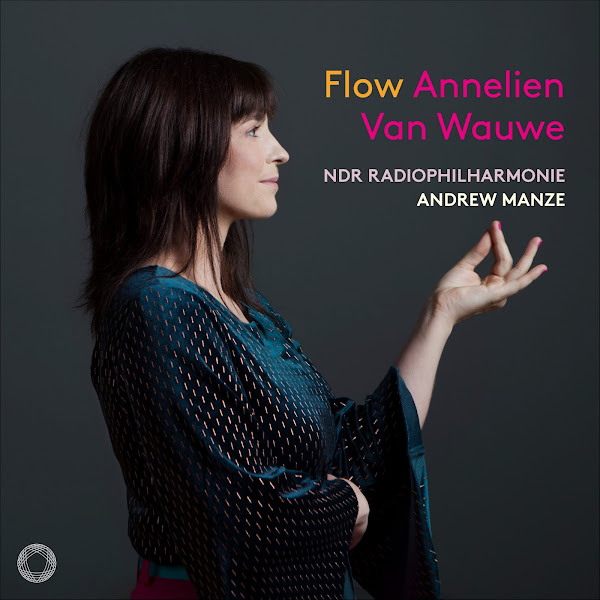Classical music or New Age nonsense?
A concerto for basset clarinet, orchestra and optional electronics inspired by the Yoga Sutras of Patanjali with four movements titled Breath of Life, Meditation, Mind Concentration and Intense Spiritual Union. And it gets worse or better depending on your point of view: the soloist and orchestra intone mantras, and in conclusion the brass and string sections chant the mantra of the Buddhist bodhisattva of compassion, Avalokiteshvara Om mani padme hum. Is it classical music or is it New Age nonsense?
The concerto is the sadly departed Wim Henderickx's Sutra which was co-commissioned for the soloist Annelien Van Wauwe by BBC Radio 3 and the Borletti-Buitoni Trust. Annelien Van Wauwe was a major influence on the concerto's composition. She is a qualified yoga teacher who explains that “I feel many similarities between actually doing yoga, getting really focused and concentrated on the breath, and then being on stage as a woodwind soloist. It’s almost the same thing. And you also need to have this calmness in your entire system to really be able to perform the music as precise and perfect as possible.”
It is these links between music and wellbeing that must be understood before dismissing Sutra as New Age nonsense. In an age of changing values and priorities classical music is struggling to justify its funding, and arguing the case for funding is becoming more and more difficult as the artform increasingly becomes just another form of entertainment. Whether we like it or not, positive metrics - both demographics and fiscal - are essential if classical music is to survive, yet along thrive. Because of this, linking classical music to wellbeing makes sense.
Mindfulness training generates annual revenues of more than $1 billion in the US alone, and a 2017 study by the US National Center for Complementary and Integrative Health reported that 14.2 per cent of adult Americans - that's more than 36 million people - now report practising meditation. It is also significant that meditation has a high penetration among the classical target market of the high DQ (Digital Quotient) cohort - the cohort with high levels of digital literacy. The two leading meditation apps are Headspace and Calm. Both apps have more than two million paid subscribers. Calm has been downloaded more than 50 million times and Headspace more than 60 million times, while in 2019 Calm became the first ever mental-health 'unicorn' - a private start-up valued at more than $1 billion.
Sutra was premiered in March 2022 by Annelien Van Wauwe with the BBC Scottish Symphony conducted by Martyn Brabbins - video via this link, and she has recorded the concerto for the Pentatone label with the NDR Philharmonie and Andrew Manze. The Pentatone recording is cleverly coupled with the audience-friendly Mozart's k. 622 Concerto in its original version for basset clarinet. Wim Henderickx and Annelien Van Wauwe cannot be accused of selling out to a new age fad. The concerto is anchored by four Patanjali sutras which focus on the inward-looking mental benefits of yoga and pre-date the corruption of yoga into a branch of callisthenics. There have been other notable examples of classical musicians practicing yoga. Probably the best-known was Yehudi Menuhin whose famous yoga acrobatics owed as much, if not more, to Western gymnastics than Patanjali's sutras. Another celebrated and thankfully less gymnastic practitioner was Herbert von Karajan; he studied with the German Jesuit priest and Zen master Father Hugo Enomiya-Lassalle, who in turn was a pupil of the Zen Rinzai priest Harada Rōshi.
It would be foolish to pretend that yoga concertos are the silver bullet that classical music has been searching in vain for. But Sutra is a valuable example of how classical music can build new audiences by linking to something that the target demographic is familiar with. Endless Mahler symphonies punctuated by virtue signalling amuse bouches fail to provide that essential link. But Wim Henderickx's Sutra does provide a link to 36 million potential classical converts in the US alone. Now that is something the classical music industry should meditate on.











Comments